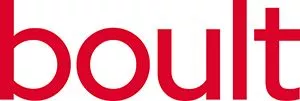- within Intellectual Property topic(s)
- within Environment and Energy and Natural Resources topic(s)
The Enlarged Board of Appeal (EBoA) of the EPO issued their ruling in case G 2/24 last week, confirming its earlier ruling in G 3/04 that a third party intervening at the appeal stage is a party as of right to proceedings, but does not acquire an appellant status corresponding to the status of a party entitled to appeal.
In this bulletin, we briefly examine the background to the case and the reasoning by which the EPO reached this decision.
Background
The background to the case was set out more fully by Boult
partner Nigel Tucker, in this bulletin from December 2024.
Briefly, an opponent had appealed against a decision of the opposition division, which had maintained the granted patent as amended according to an auxiliary request of the patentee. In the meantime, a third-party had begun proceedings in the German courts, seeking a declaration of non-infringement of the granted patent.
The Enlarged Board of Appeal had previously ruled in G 3/04 that an assumed infringer intervening during appeal proceedings can be conferred the status of an opponent but not that of an appellant. This was based on the conclusion that the first sentence of Article 107 EPC required an appellant to have been a party to the proceedings leading to the decision: an assumed infringer could not meet this requirement as they intervened after the decision had been issued. Consequently, such an assumed infringer could only become a party as of right within the sense of Article 107 EPC.
The key facts in the referring case for G 3/04 are broadly similar to the present referral, however the referring board had expressed their intention to deviate from this decision and criticised the earlier G 3/04 decision in its referral.
The Decision
The Enlarged Board broadly endorsed the previous decision
of G 3/04 and found that an intervener who intervenes at the appeal
stage is procedurally an accessory to the appeal proceedings
initiated by one or more parties adversely affected by the decision
under appeal. As such, the intervener does not acquire an appellant
status corresponding to the status of a party entitled to appeal,
but is instead a party as of right.
The implication of this is that if all appellants withdraw their respective appeals, the appeal proceedings cannot be continued with an intervener at appeal.
Reasons
In considering the admissibility of the referral, the
Enlarged Board of Appeal made clear that they did not find the
prospect of a point of Boards referring a question of law simply
because they disagreed with an earlier Enlarged Board decision
particularly appealing (see Reasons 9). However, the referral found
support from a number of other sources, notably including the
President of the EPO and the referral was found to be
admissible.
In considering the referral, the EBoA first considered whether there had been any changes to the EPC since G 3/04 which would have a meaningful impact on the legal reasoning of the previous decision; this was potentially significant, since G 3/04 was based on the original EPC 1973, rather than the updated EPC 2000. However, the EBoA found that there were no substantive changes to any of the relevant Articles (specifically, Articles 99, 105 and 107 EPC).
Next, the Enlarged Board considered the legal concepts of appeal and intervention and their inter-relation and qualification as a party. With regard to the legal purpose of appeal, the Enlarged Board noted that (see Reasons 34), the appeal process at the European Patent Office (EPO) is not something that the EPO starts on its own to check or correct its own decisions, but rather the onus to initiate an appeal lies with the party who disagrees with a decision. Crucially, the Enlarged Board noted that the appellant is in control of the scope of the appeal with regard to which parts of the decision they want to challenge and whether to bring the appeal to an end, under the principle of party disposition. In considering Article 107 EPC, the Enlarged Board observed that this provision merely guarantees that parties to appeal proceedings as of right have a right to participate in pending appeal proceedings (Reasons 64).
Finally, the EBoA considered existing case law of the Boards of Appeal and a comparative analysis of different jurisdictions' approaches to the status of interveners. The EBoA found two Board of Appeal cases in which the decision of G 3/04 had been followed and found no reason in the National laws of any of the EPC member states to deviate from the decision in G 3/04.
Consequently, the Enlarged Board ruled that proceedings cannot be continued by a third party at the appeal stage, where that third party only intervened at the appeal stage and the appellants have withdrawn the appeal.
See the full text of the ruling here.
The content of this article is intended to provide a general guide to the subject matter. Specialist advice should be sought about your specific circumstances.



